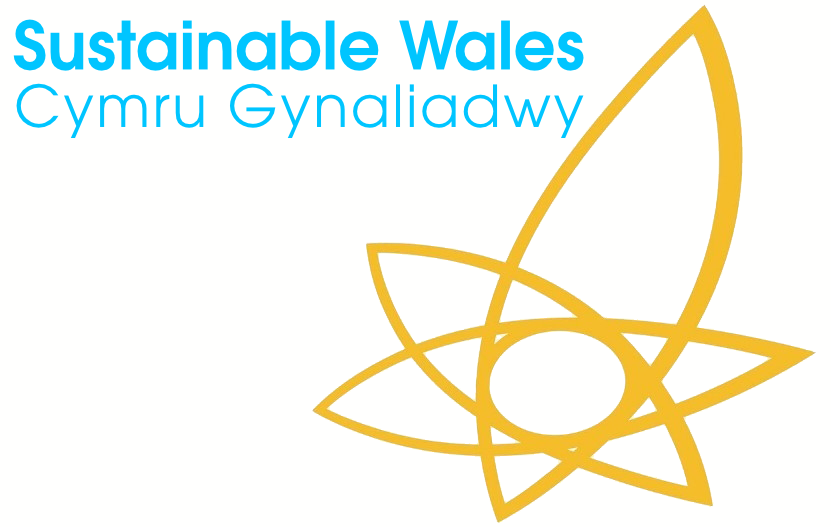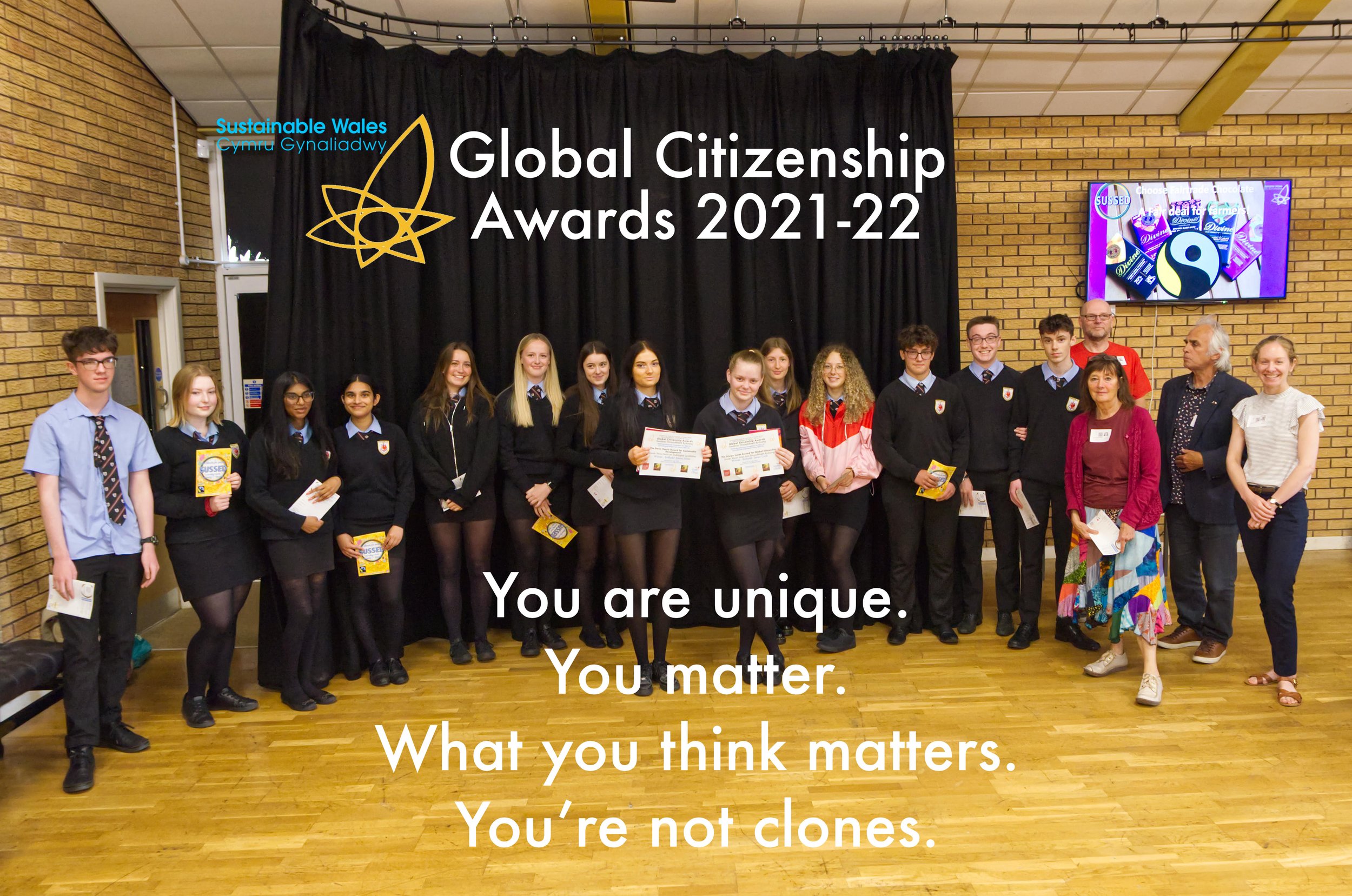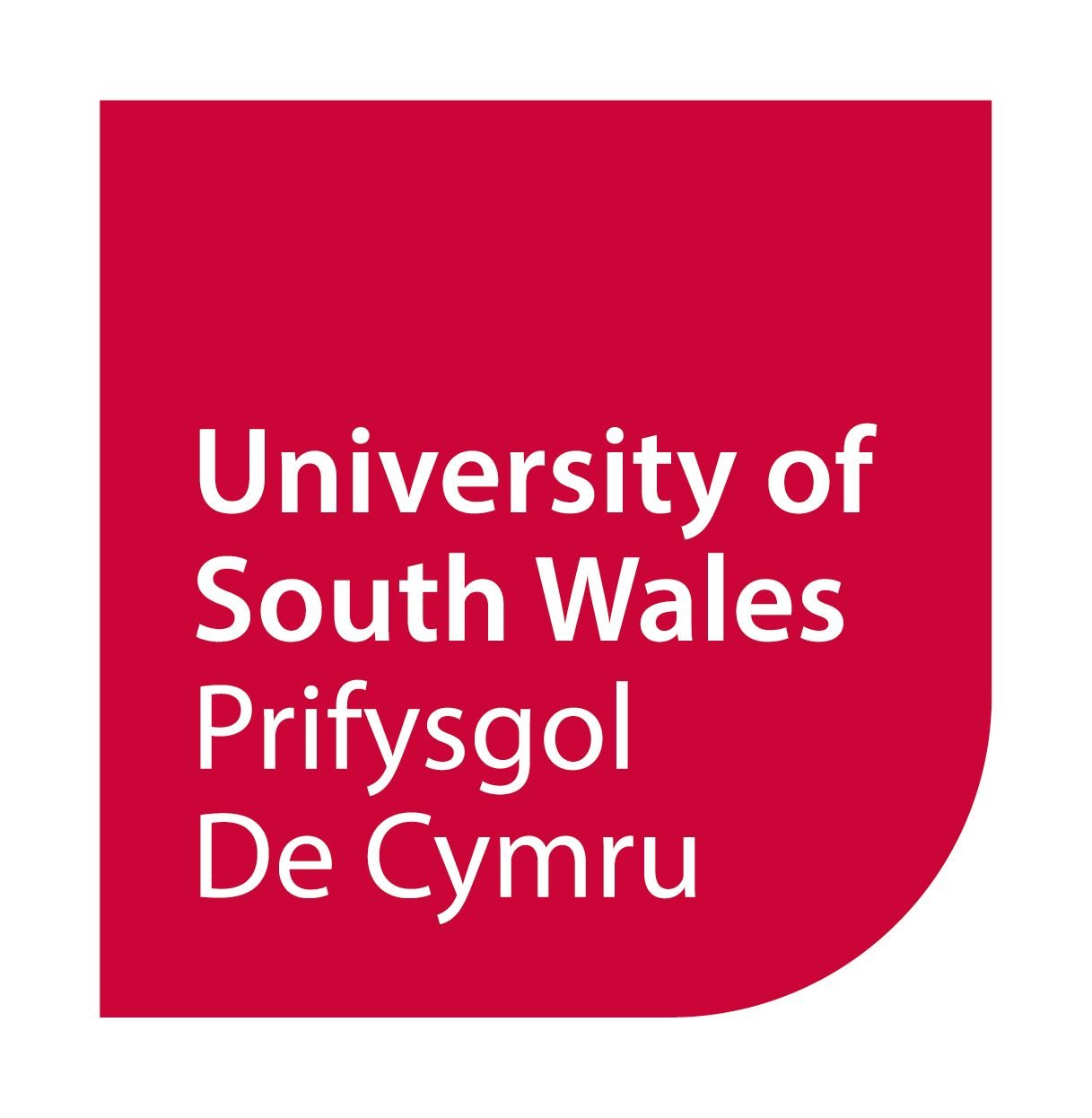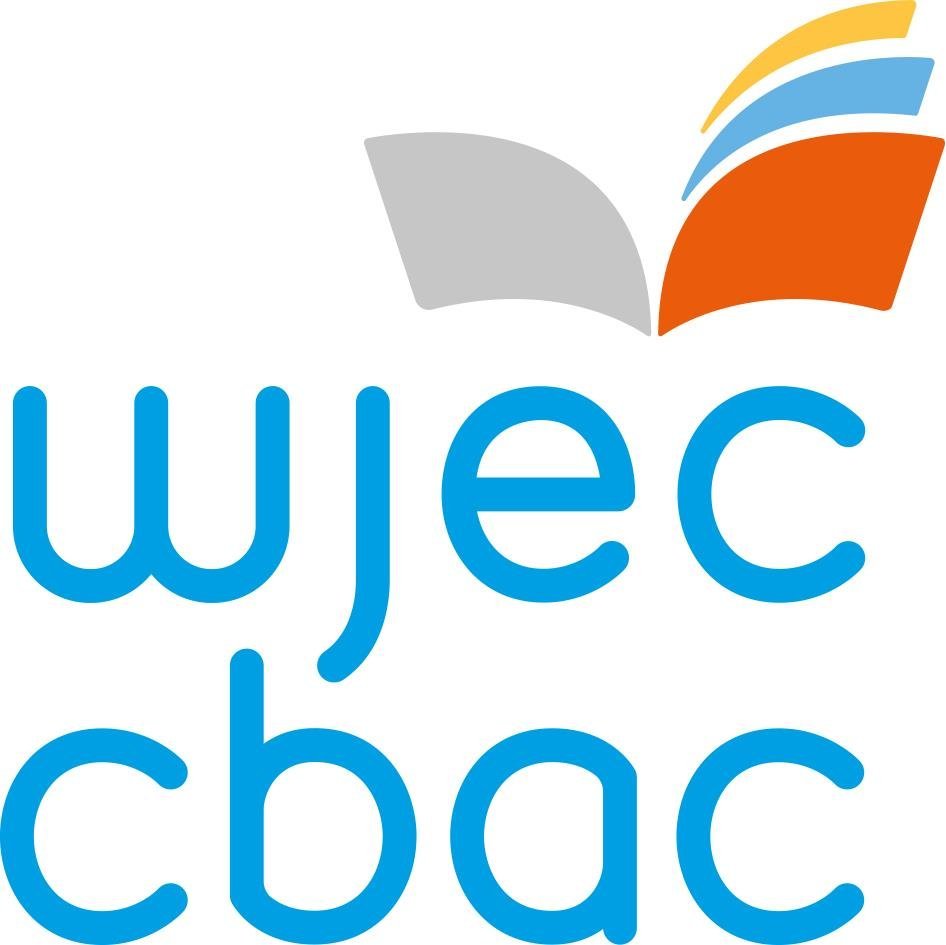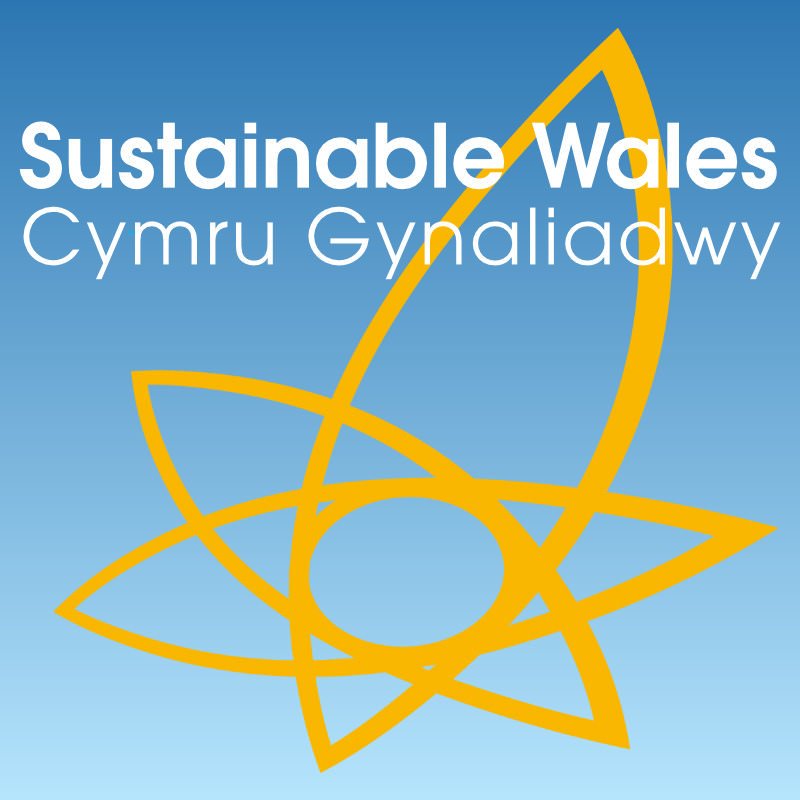Sustainable Wales & USW
Global Citizenship Awards
Winners
Global Citizenship Awards Logo
Sustainable Wales & University of South Wales
Partnership Awards for Study & Sustainability
Main information page for the Global Citizenship Awards
winners announced
〰️
winners announced 〰️
Entrants and winners of the Global Citizenship awards 2021-22
previous winners announced 6 July 2022
A visit to the University of South Wales (USW) to see how it is addressing the challenges of sustainability has helped two sixth-form students each win £250 prizes in a Global Citizenship competition.
The contest formed part of a partnership between USW, Sustainable Wales, and the Welsh Joint Education Committee (WJEC), which earlier this year saw 120, year 12 students from Porthcawl Comprehensive School visit USW’s Treforest Campus. During the visit, which included a campus tour, the students had lectures on sustainable fashion, climate change solutions, transforming urban mobility, and mapping and monitoring biodiversity change.
After the visit, the A-level Welsh Baccalaureate students were invited to submit entries for the best Global Citizenship Project under key themes including population, land use, sustainable resources, energy, climate change, and cultural and political influences, which would be used as competition entries. They were asked to identify a problem, suggest solutions, and come up with ideas of actions that need to be taken.
Following the judging of the competition entries by Dr Stewart Eyres, Deputy Dean of Faculty of Computing, Engineering & Science at USW; Robert Minhinnick, award-winning writer and long-standing adviser to Sustainable Wales; and Professor Merryn Hutchings, Emeritus Professor at the Institute for Policy Studies in Education, Seren Cook and Emma Jones were announced as the winners.
The Steve Harris Award for Sustainable Development
Gwobr Steve Harris am Datblygiad Cynaliadwy
Emma Jones
Emma’s topic tackled one of the key issues for sustainability, and her methodical research gained her the Steve Harris Award for Sustainable Development:
We live in what some call a ‘throwaway society’, a society influenced by consumerism. How can we tackle this issue?
The Alwyn Jones Award for Global Citizenship
Gwobr Alwyn Jones dros Dinasyddiaeth Byd-eang
Seren Cook
Seren’s project was a natural choice for the Alwyn Jones Award for Global Citizenship:
Period poverty is a pandemic amongst females affecting them globally. What procedures can be put in place to resolve this?
Congratulations to the winners who each received their award and £250 prize presented by Robert Minhinnick, one of the judging panel.
Robert Minhinnick, on behalf of the judging panel, said, “I thought Seren and Emma’s essays revealed their dissatisfaction - even outrage - at how menstruation and periods are treated, together with the negative side of fast fashion. I can imagine Seren transmuting this feeling into art or citizen action, and Emma also building her principles into her own life.
This is important, I feel, as we want to encourage students who believe that information and research should be used to improve social and environmental conditions. This surely is the point of these writings and research, and for Sustainable Wales’s promotion of these subjects.
The charity commends all those who entered the competition, and we are delighted to present their awards in person to the winners, on Wednesday, July 6.”
All other entrants to the competition also received an unexpected award of £5 SUSSED fairtrade and ethical shop vouchers (generously supported by Fairtrade Wales). Thanks to Fairtrade Wales who also sponsored the fairtrade chocolate samples provided to those who attended.
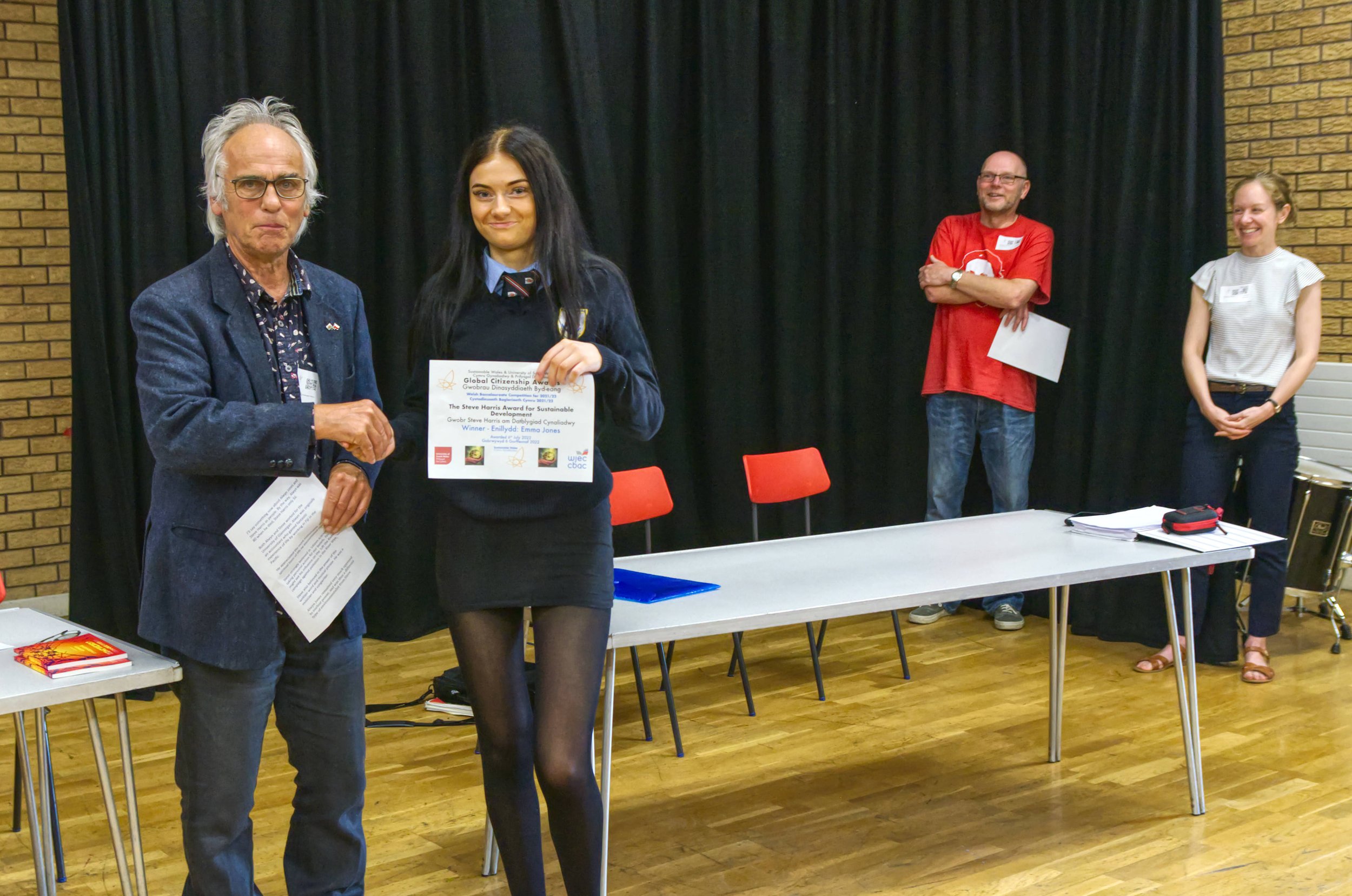
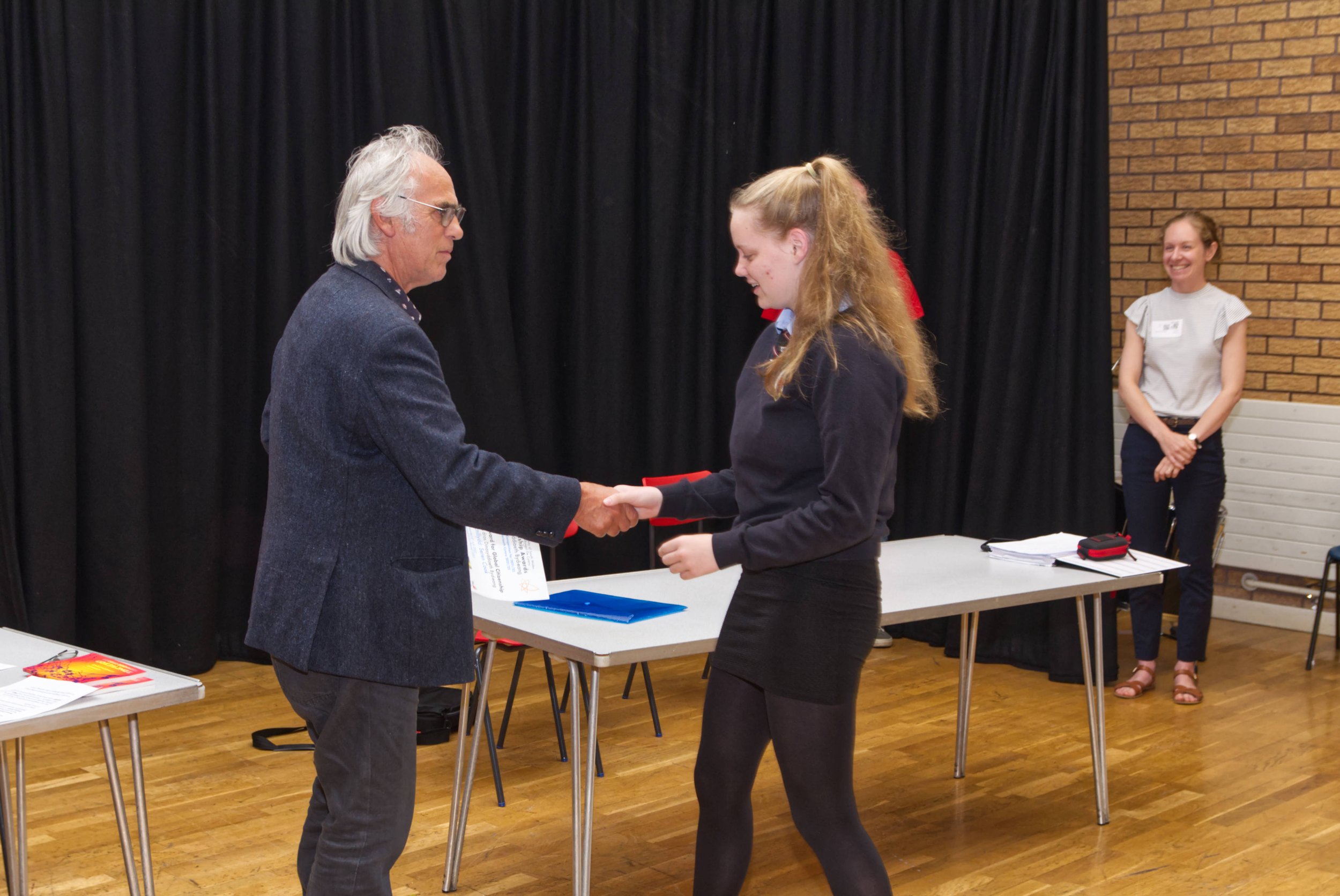
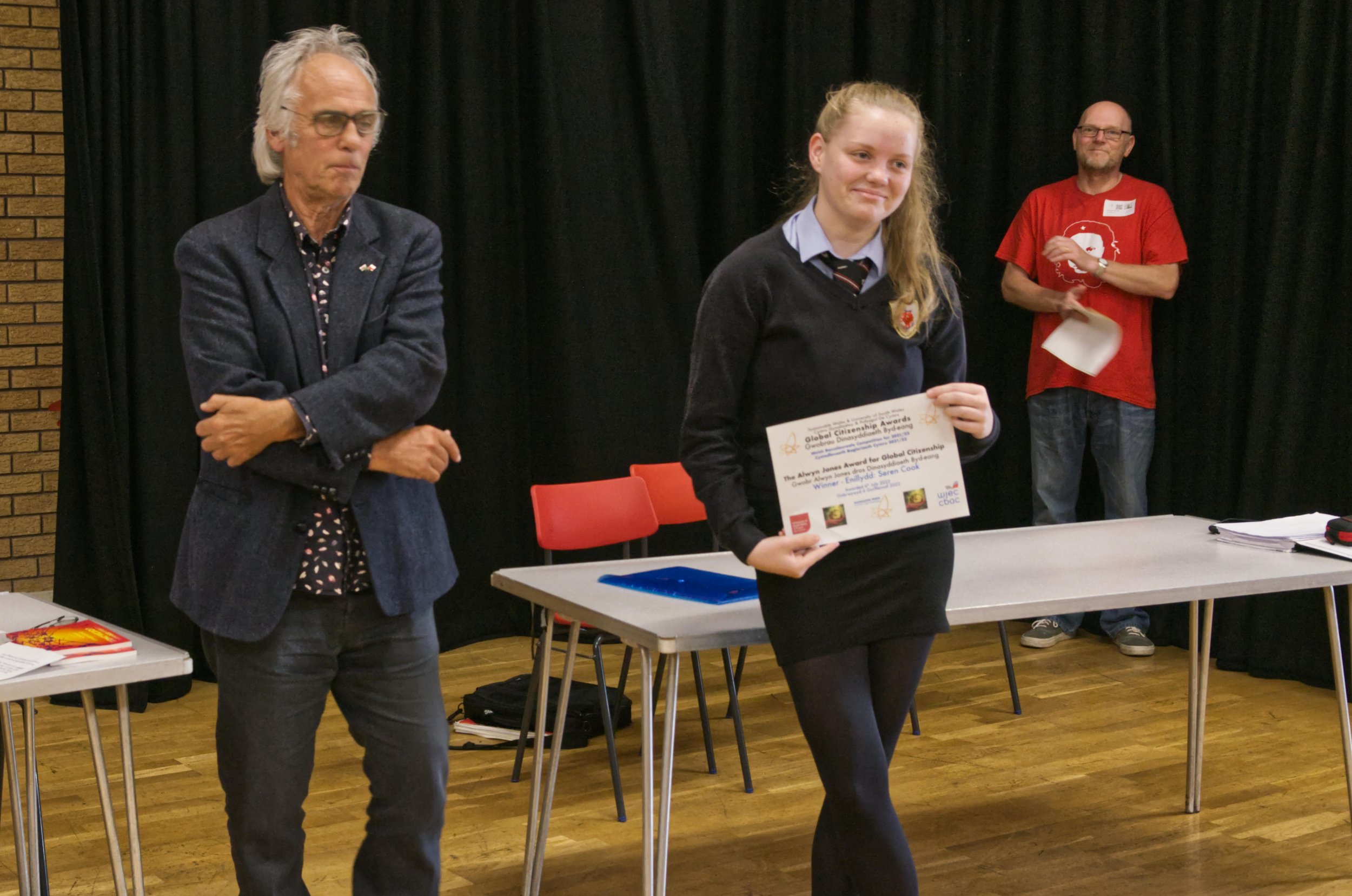
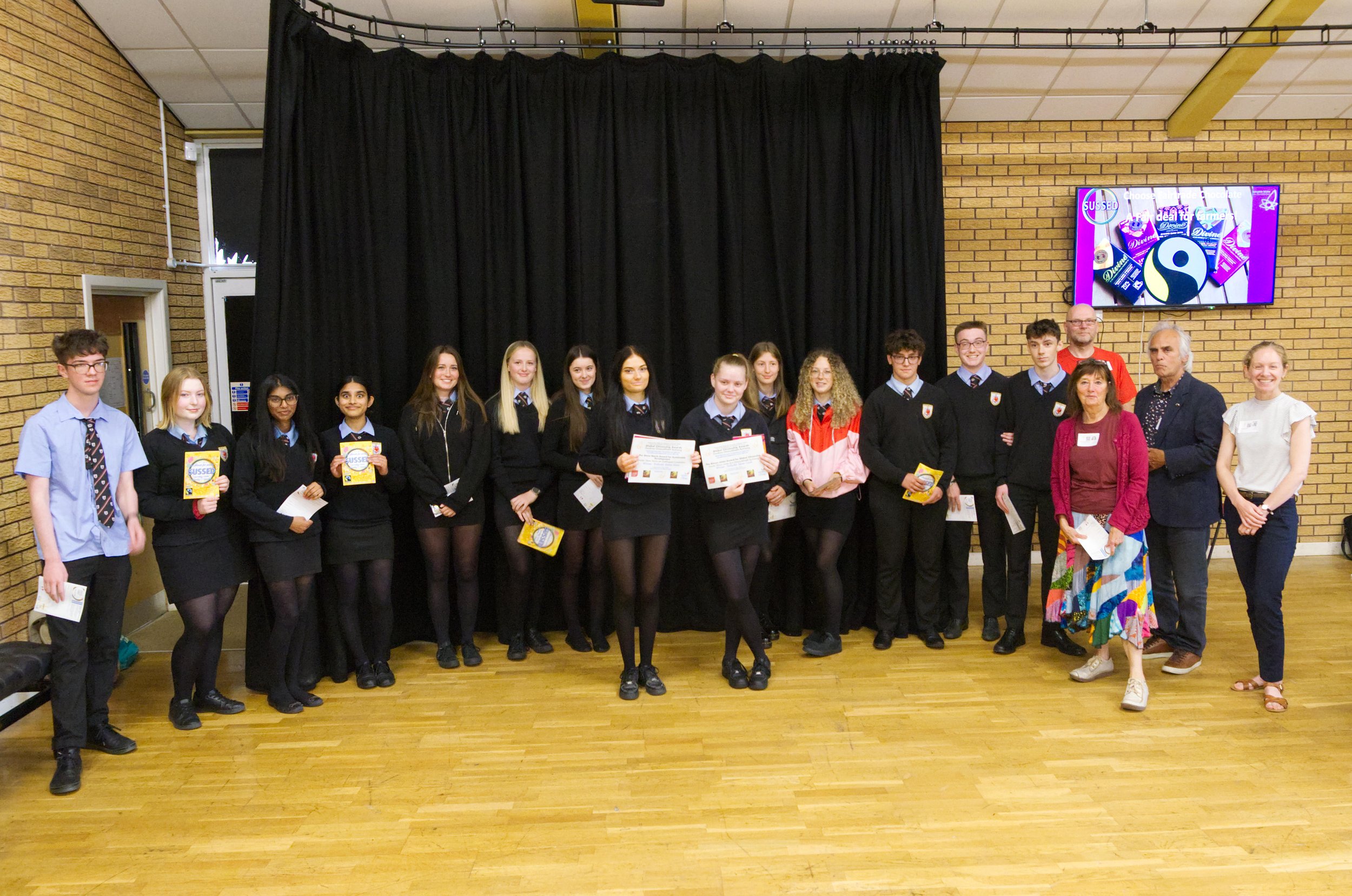
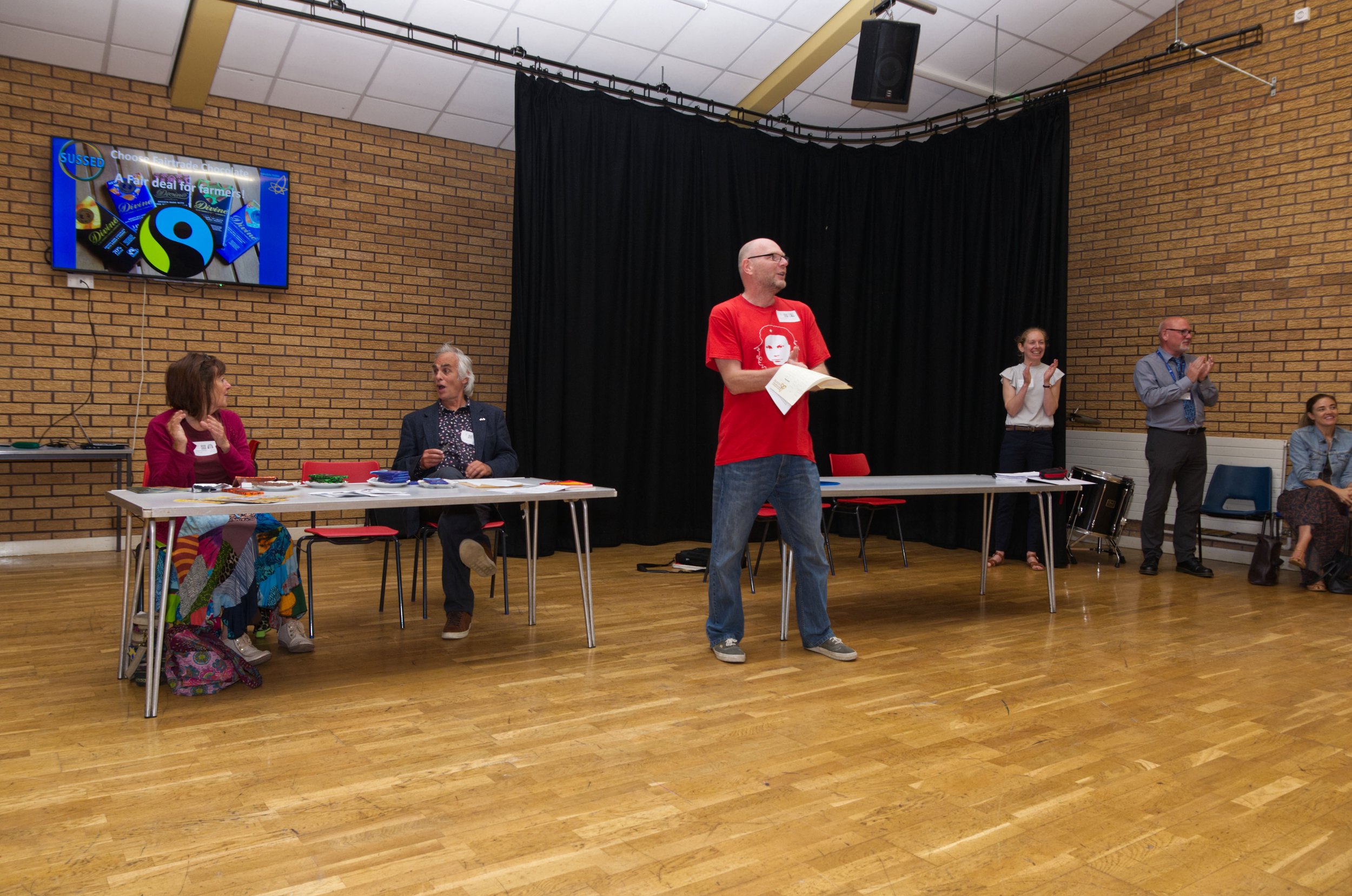
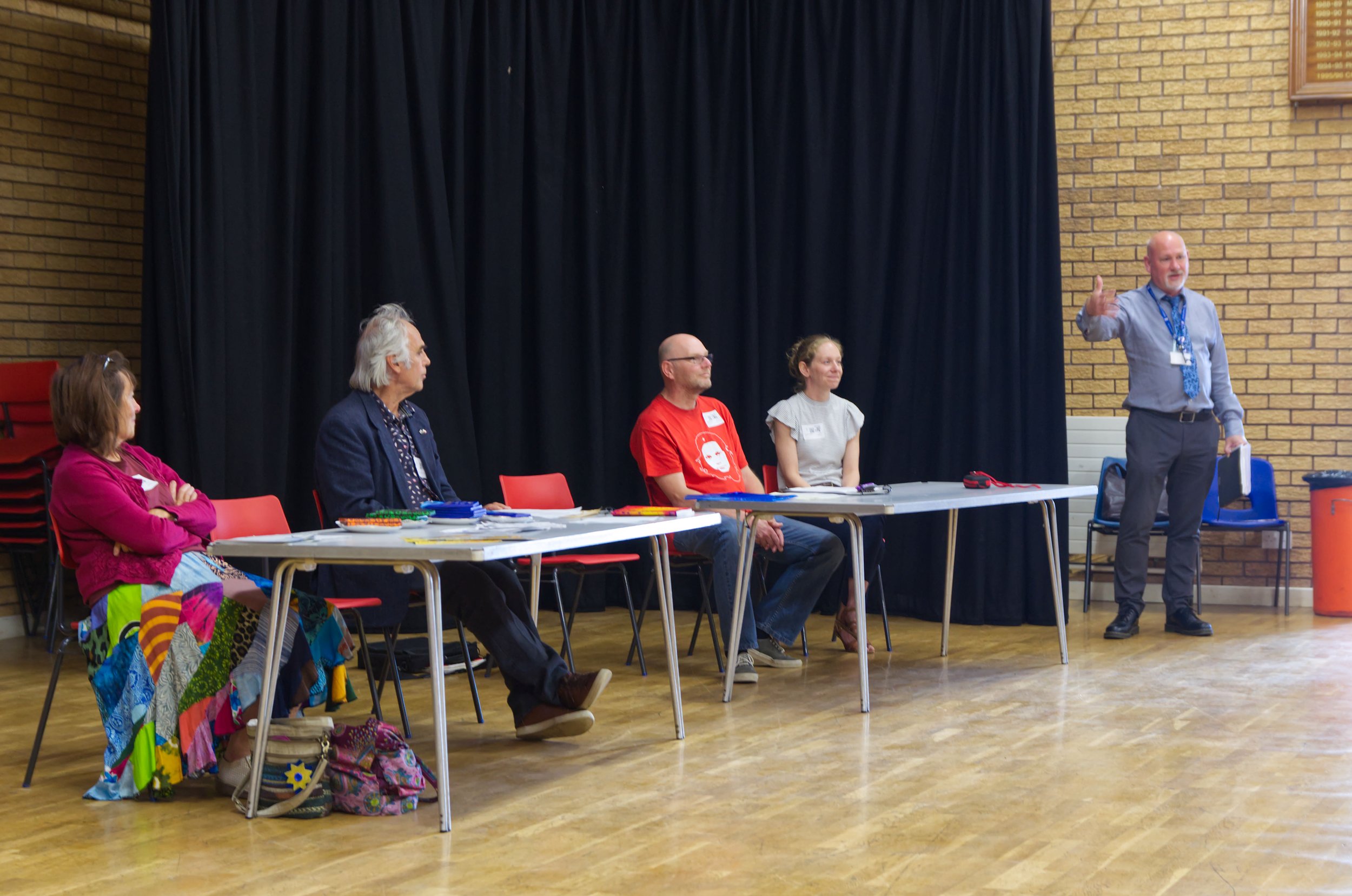
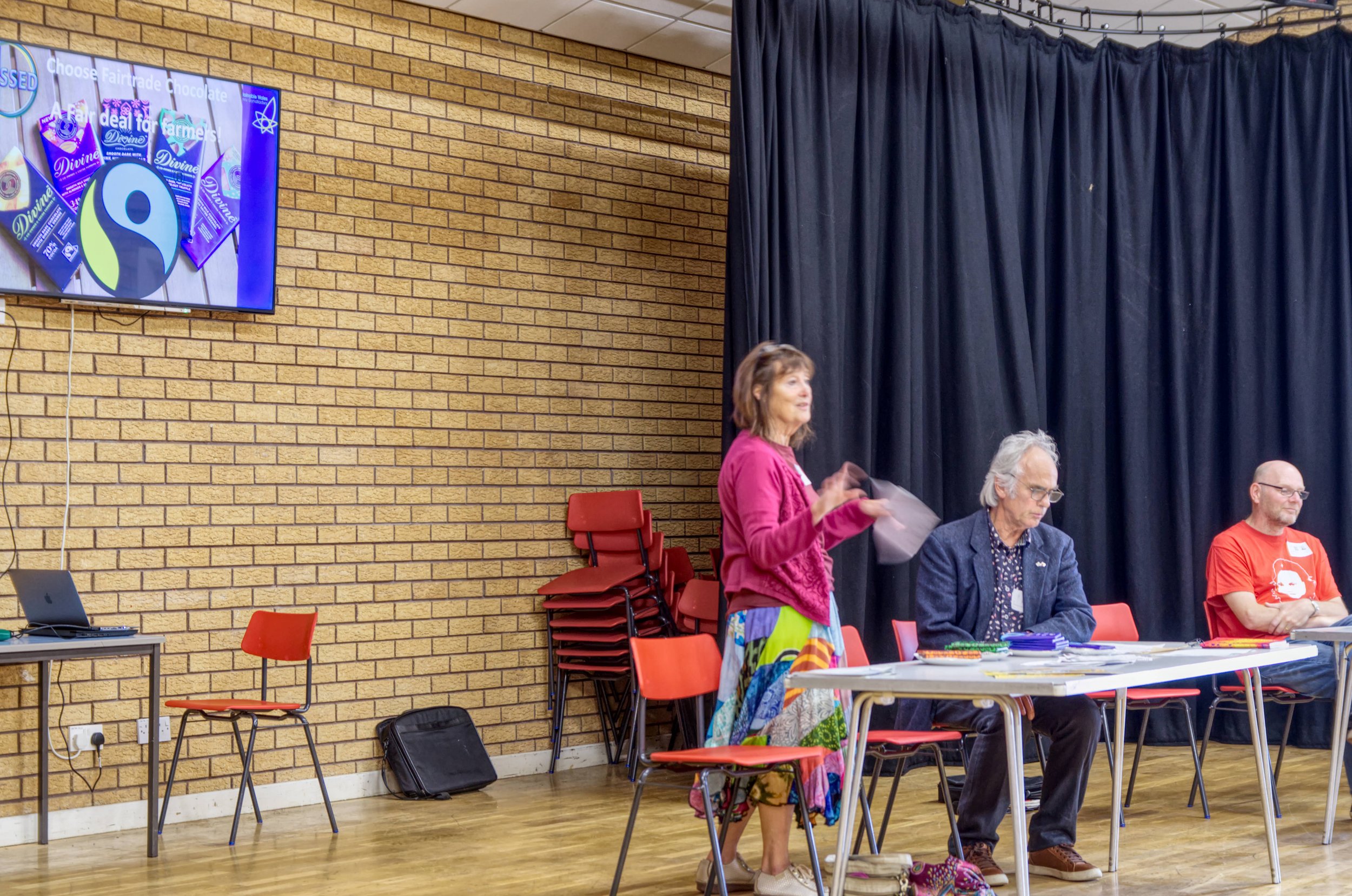
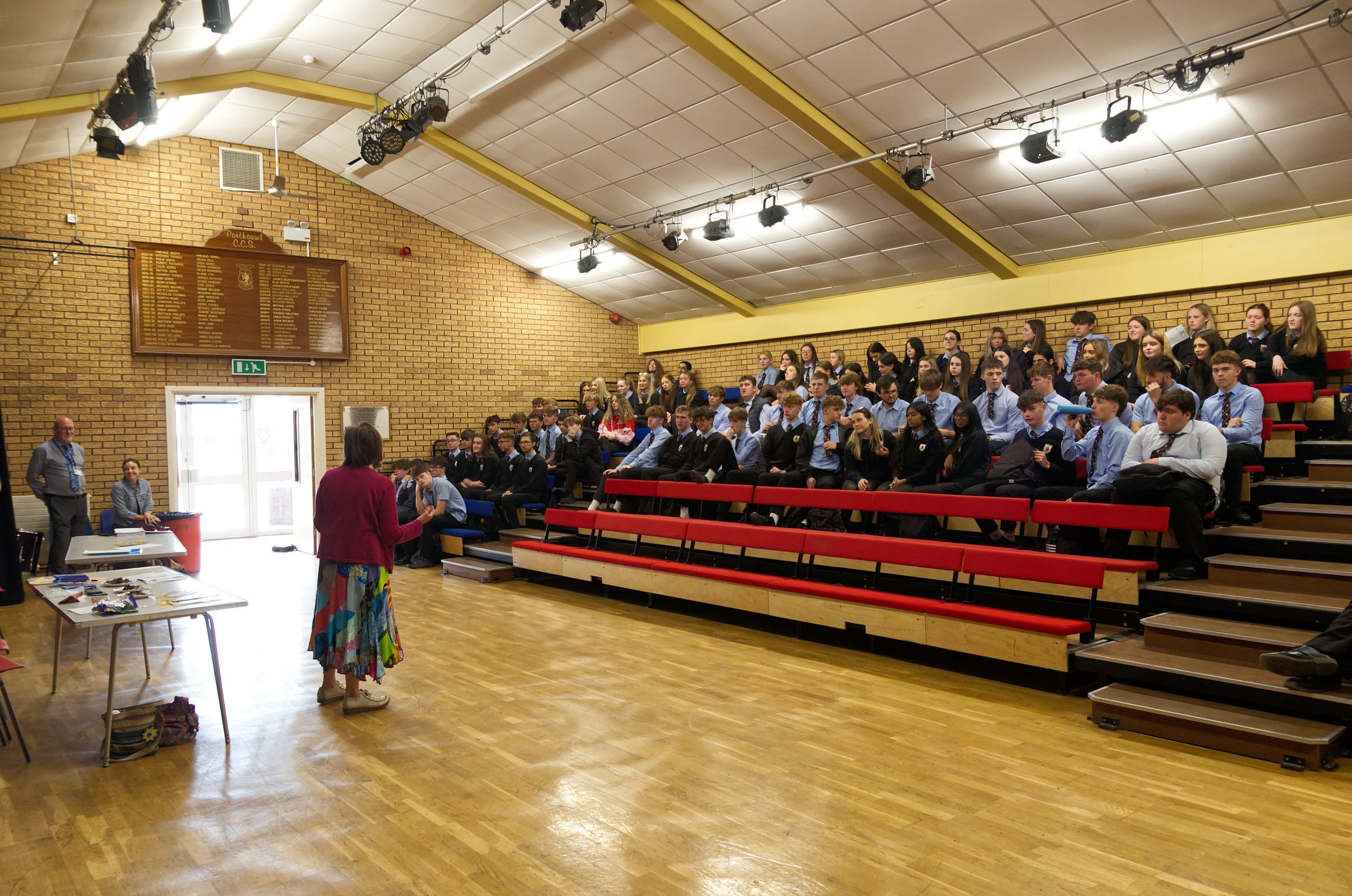
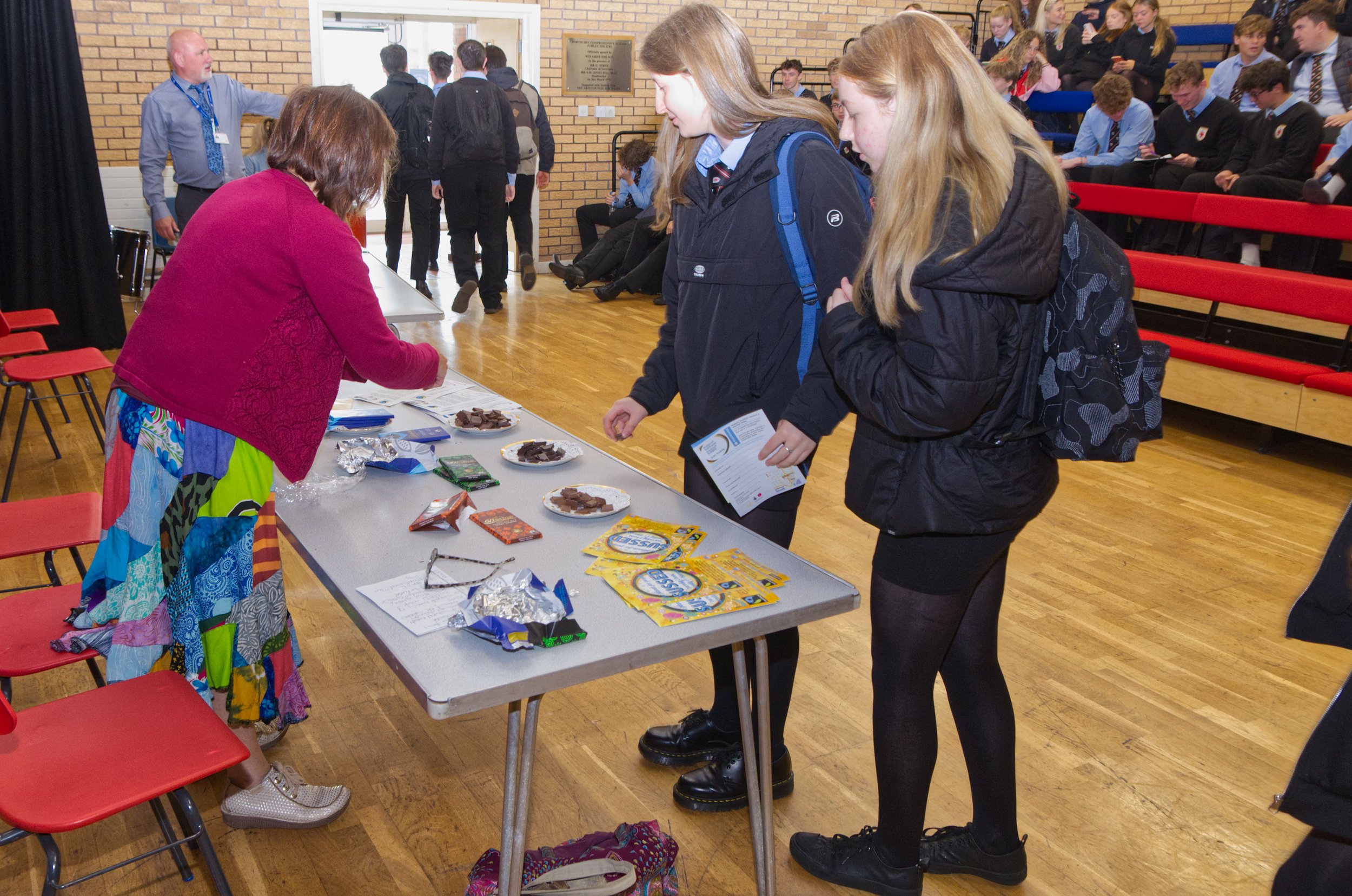
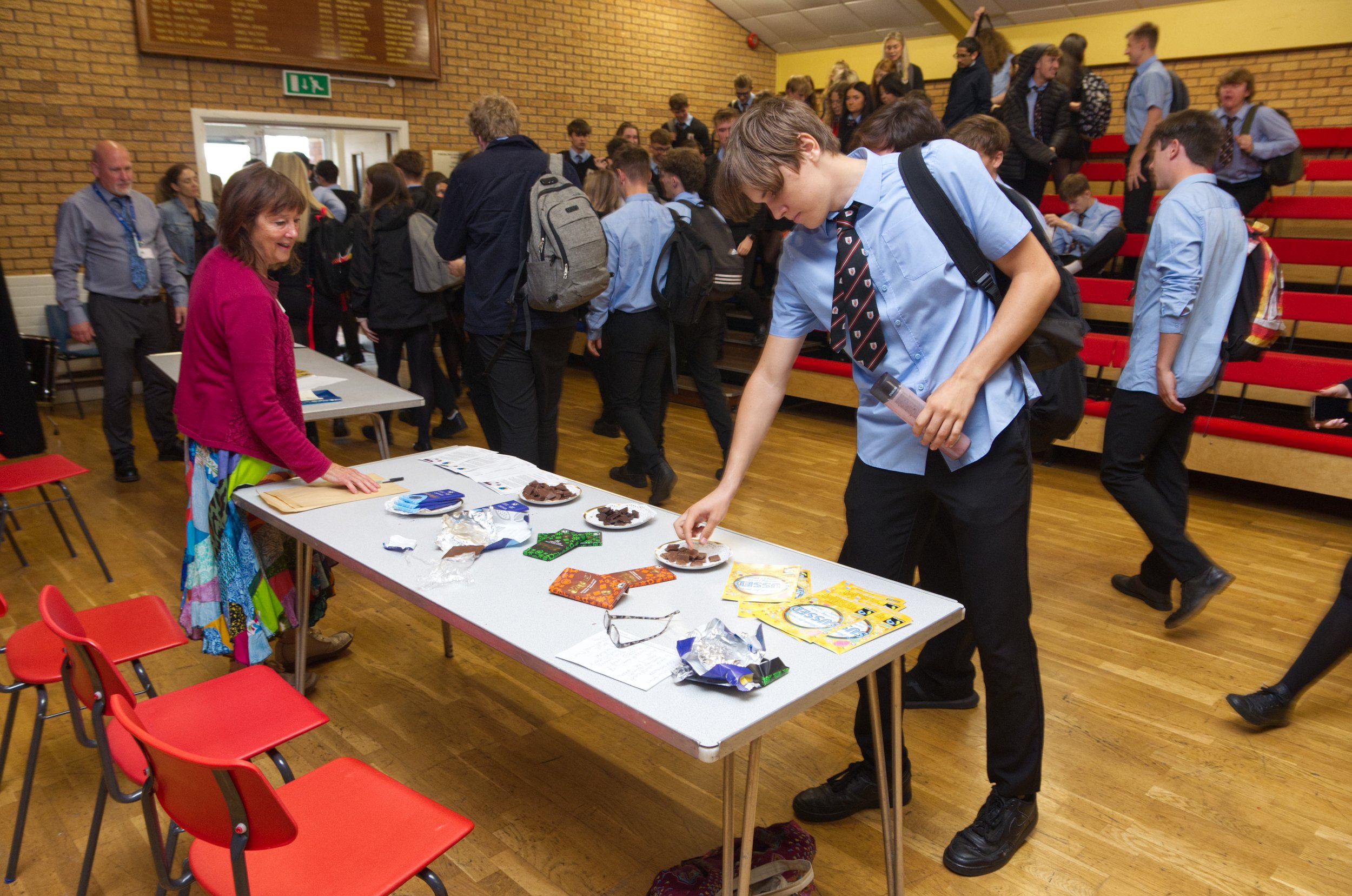
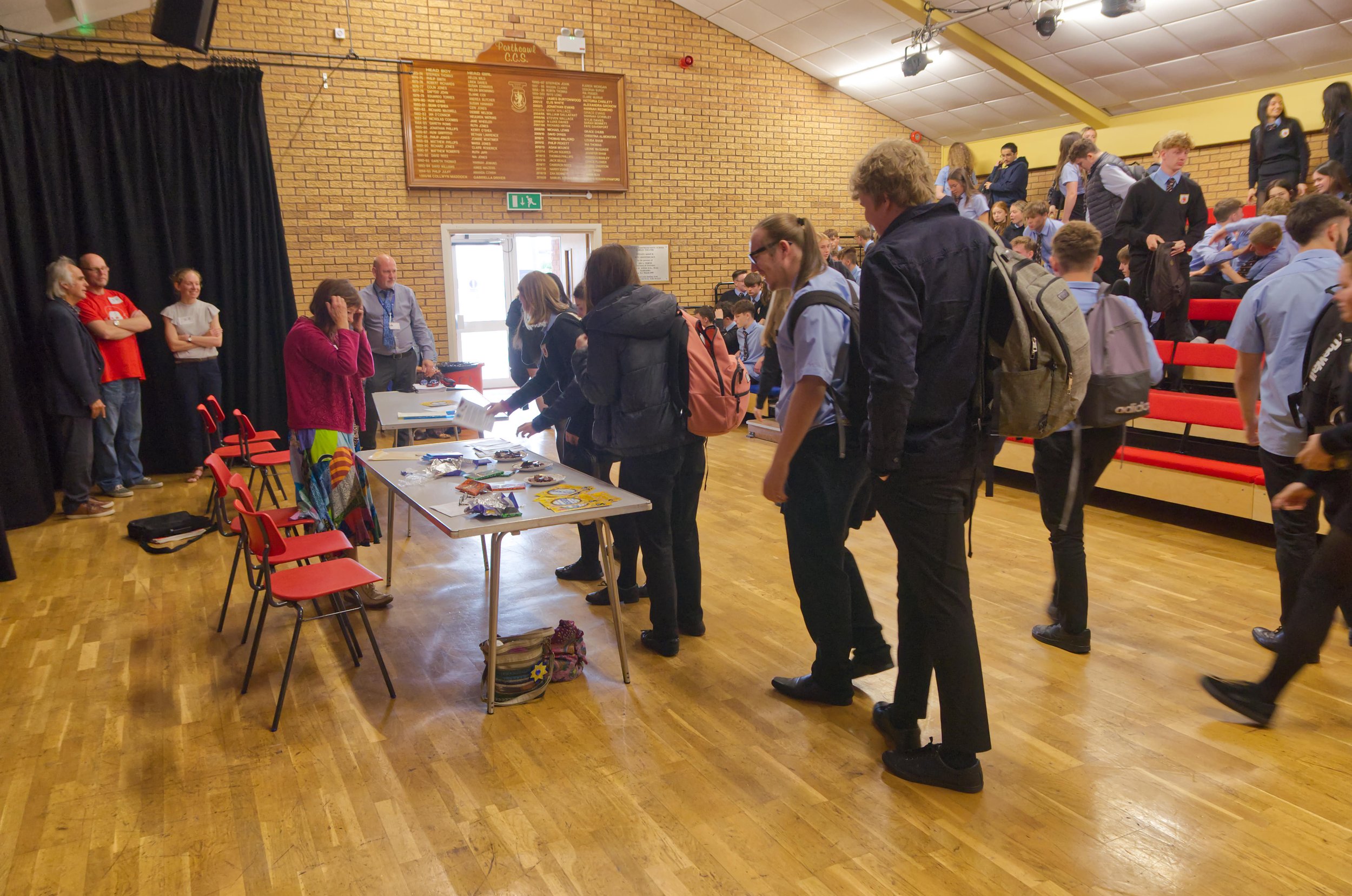
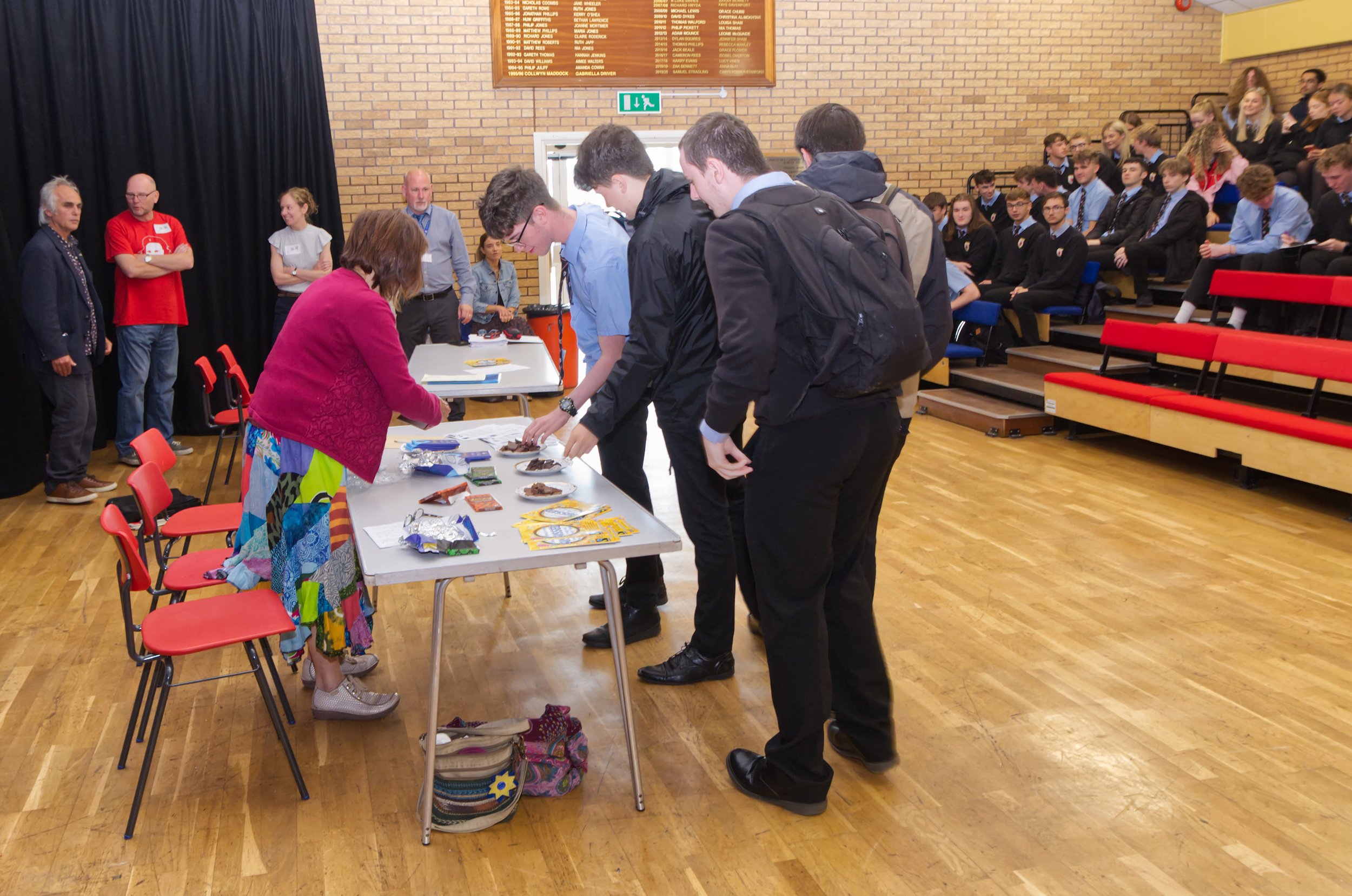

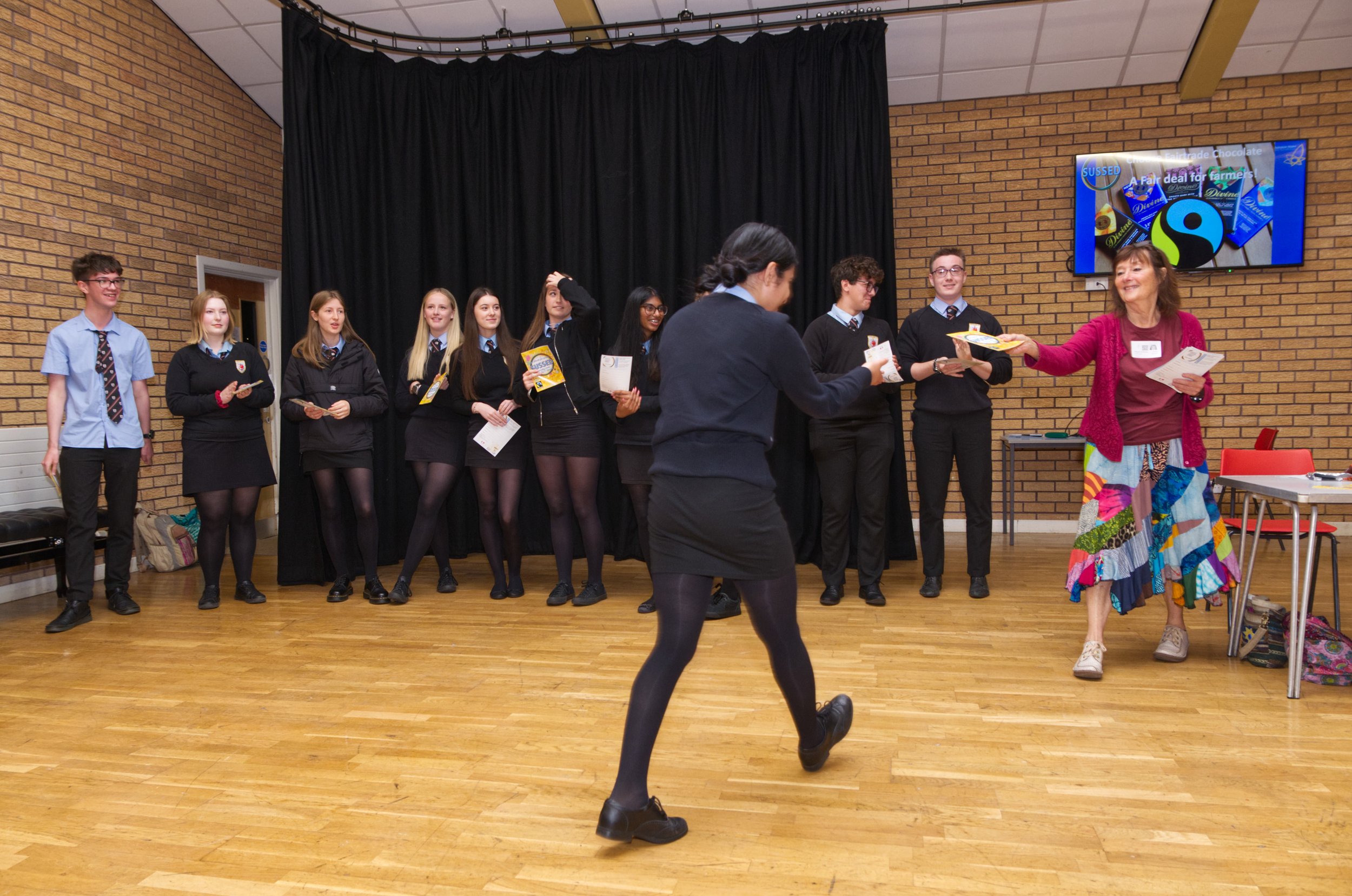
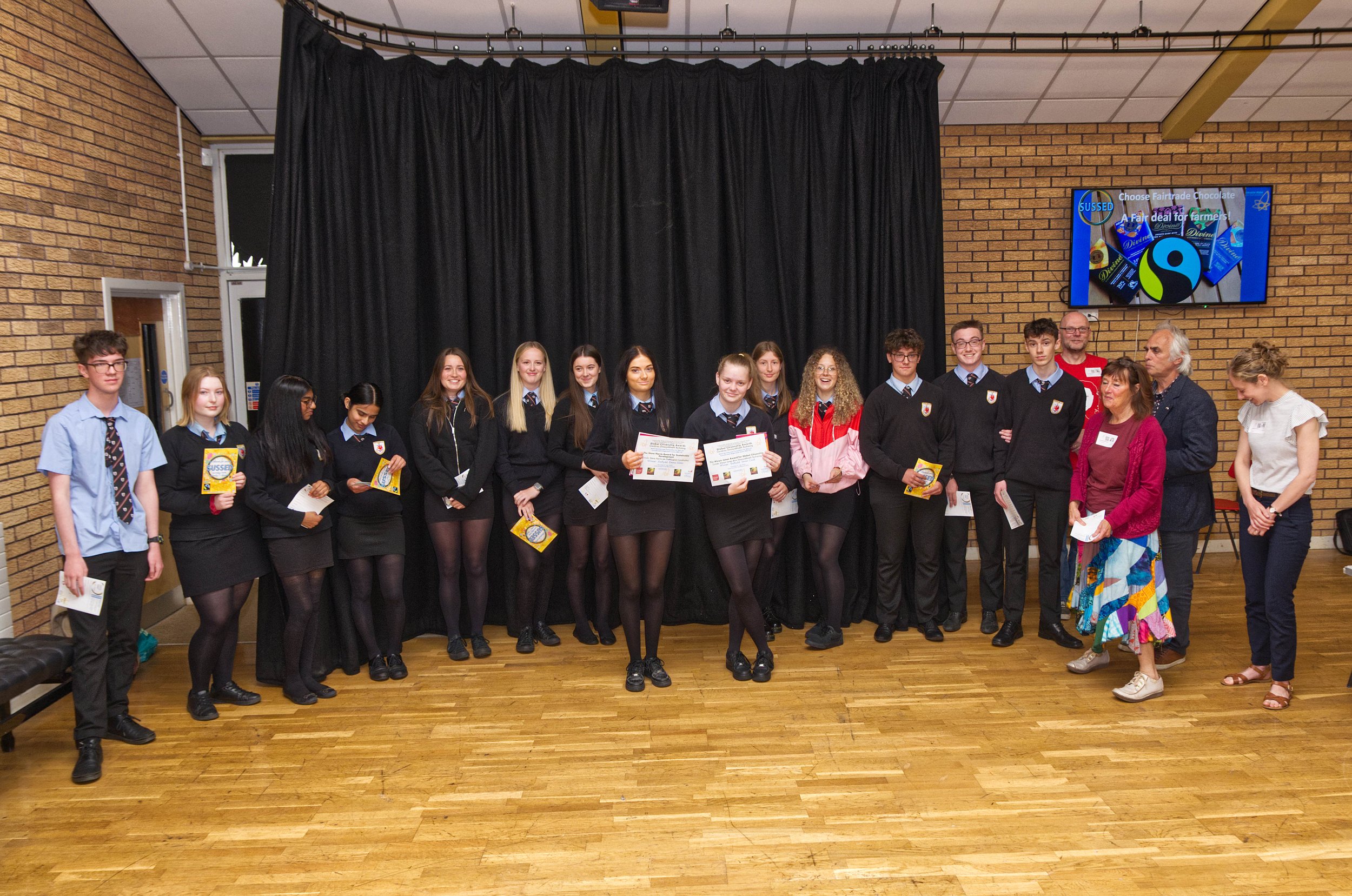
background to the awards
In explaining how the awards came to be named, Richard Thomas, a Trustee for Sustainable Wales who was involved in organising the competition, said, “Alwyn was a philosopher and Director of Studies for University of Glamorgan’s, now USW, first ‘green’ degree. He took great learning from his early adult life experiences working overseas in places like Fiji. Alwyn was a long-time friend and volunteer with Sustainable Wales who believed in taking personal responsibility and action in the smallest aspects of daily life. A tree was planted in his name in the Treforest campus grounds.”
“Steve was a scientist and research academic and a Senior lecturer in Science Communication at the University of Glamorgan. He was a great communicator as well as a musician and community activist. He worked at the university, but was also a passionate contributor to our charity.
“Both Alwyn and Steve believed in applying knowledge to action, and this was central to their work as educators at USW and as volunteers with Sustainable Wales.”
Sustainable Wales was established in 1997 as the first organisation in Wales to focus on sustainable development as its main activity. The charity aims to educate businesses, government bodies, community sector and the wider public on what the main problems are for achieving sustainable development, and what the possible solutions might be to overcome those problems.
“Following the idea that sustainable development requires a safe and secure environment to support an engaged, informed, and healthy population that can undertake equitable and responsible manufacture, both Alwyn and Steve recognised the significant pressures that unsustainable human activity continues to have on the world and were passionate in exploring solutions to our modern dilemma,” Mr Thomas added. “This is why we named the awards after these two key people.”
This year’s competition was run as a pilot, with Sustainable Wales looking to expand it to more schools in 2023.
Thanks to Alan Thomas and Porthcawl Comprehensive School for their enthusiastic support of this competition pilot.
Text of the announcement given by Robert Minhinnick at the award ceremony:
The charity, Sustainable Wales Cymru Gynaliadwy would like to thank everyone who entered this Baccalaureate competition.
We congratulate the two chosen as winners.
Seren Cook – Is winner of the Alwyn Jones Award for Global Citizenship.
Emma Jones – is winner of the Steve Harris Award for Sustainable Development.
Alwyn and Steve were both board members of this charity.
We can imagine both winners – Seren and Emma - going on to turn their enthusiasm for their subjects – ‘period poverty’ and ‘consumerism’ into voluntary, maybe political action.
And also imagine both winners using their strongly-held beliefs in the making of art.
I’ll say something now about Alwyn Jones and Steve Harris as people. By the way, Alwyn was 80 when he died, Steve Harris only 56.
Both Alwyn and Steve worked for the University of Glamorgan. Alwyn was originally an accountant who gained fantastic experience of life by working in Fiji in the Pacific.
He appreciated the more sustainable, even spiritual form of life he encountered there.
Steve strongly believed in ‘citizen science’, taking personal action for our beliefs. You might see his influence on the ‘Lift the River’ campaign against pollution in the River Wye.
Steve also believed in the power of the written word and musical phrase. He was a musician and songwriter.
Alwyn Jones remained very much opposed to nuclear power, and was thus a different type of environmentalist from Steve.
Steve Harris felt that nuclear was the answer to climate change and global warming.
Steve Harris was also supportive of genetic engineering of food crops. In fact, Steve blamed the green movement for allowing world hunger and climate irregularity by its too rigorous opposition to nuclear power and genetic engineering.
For Steve Harris, genetics could supply possibly the only answer to world hunger.
Alwyn foresaw nuclear waste extending thousands of years into the future and felt nuclear power a permanent cause of pollution.
Maybe Steve felt the green movement hidebound and conservative, afraid of challenges. Alwyn would not have agreed.
Both Alwyn and Steve were interested and involved in the arts. It was vital to both men. It completed their vision of ‘sustainability’ via the use of the human imagination to describe what it is to be ‘human’.
Music, literature, dance, painting, sculpture, cookery, mime, songwriting, drama, etc were all art forms in which people described what it is to be human. For Steve and Alwyn, a world without art was inconceivable.
Steve Harris was a songwriter who left behind a body of work, only made known to us at his death.
Both Alwyn & Steve depended on curiosity, which is the foundation of both science and creative art.
They asked questions, and possessed a journalistic flair, which I urge all the Baccalaureate candidates never to abandon, but to foster always and keep developing.
I enjoyed reading all of the Baccalaureate projects, and give all the candidates this advice.
Apply your research to yourself and where you live, be it Porthcawl, Corneli, Pyle, Bridgend, Margam.
You are unique.
You matter.
What you think matters.
You’re not clones.
Whether you go into science or art or both, never forget that fact.
Steve Harris used to write his songs and essays in a café at Trecco Bay, maybe the Hi Tide.
I was closer in age to Steve than to Alwyn, and I still mourn Steve’s early death.
Here’s a quote from a poem I published about Steven Harris in the Hi Tide at Trecco, Porthcawl:
Steve would sit with coffee
Under the mullions of a marine sky,
The fruit machines ringing in the arcade,
Maybe one player in that café, sand
On the counter like spilled sugar.
Yet it was somewhere he might work.
And feel glad.
Because work is prayer.
USW Logo
Both Steve and Alwyn had discovered their best ways to work. Their work defined both men.
Sustainable Wales would like to award copies of our recent publication, ‘Gorwelion Shared Horizons’ to both winners, Seren and Emma.
It is a collection of new prose and poetry, with a theme of climate change. It has nine writers from Wales, two from Scotland and five from India. It is dedicated to Alwyn Jones and Steven Harris.
